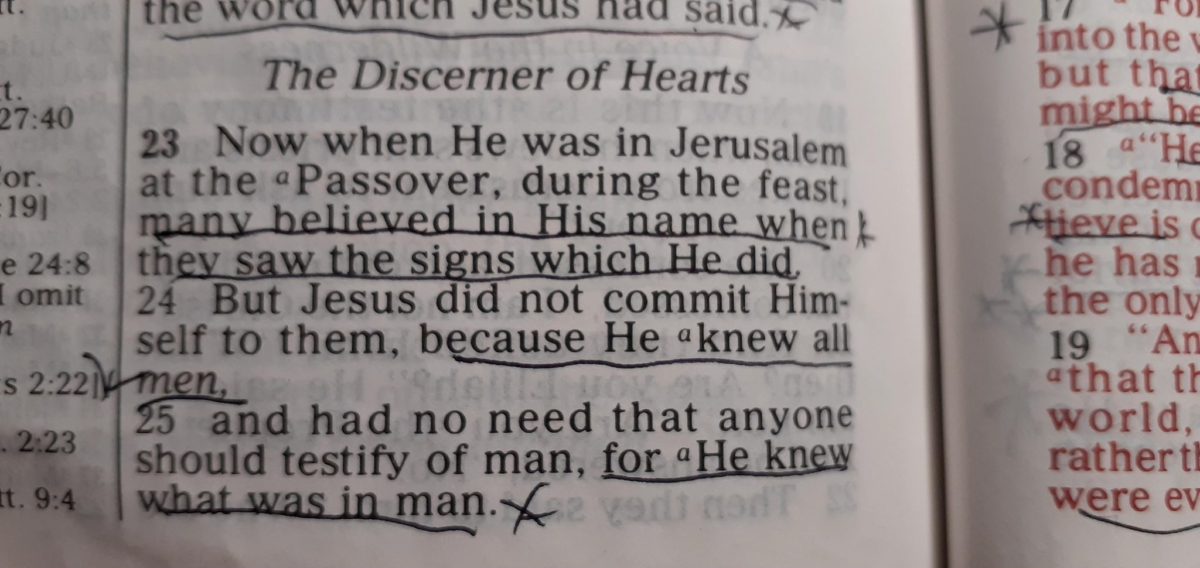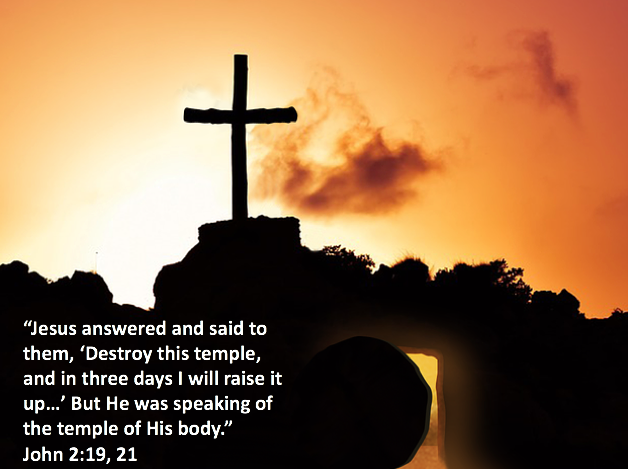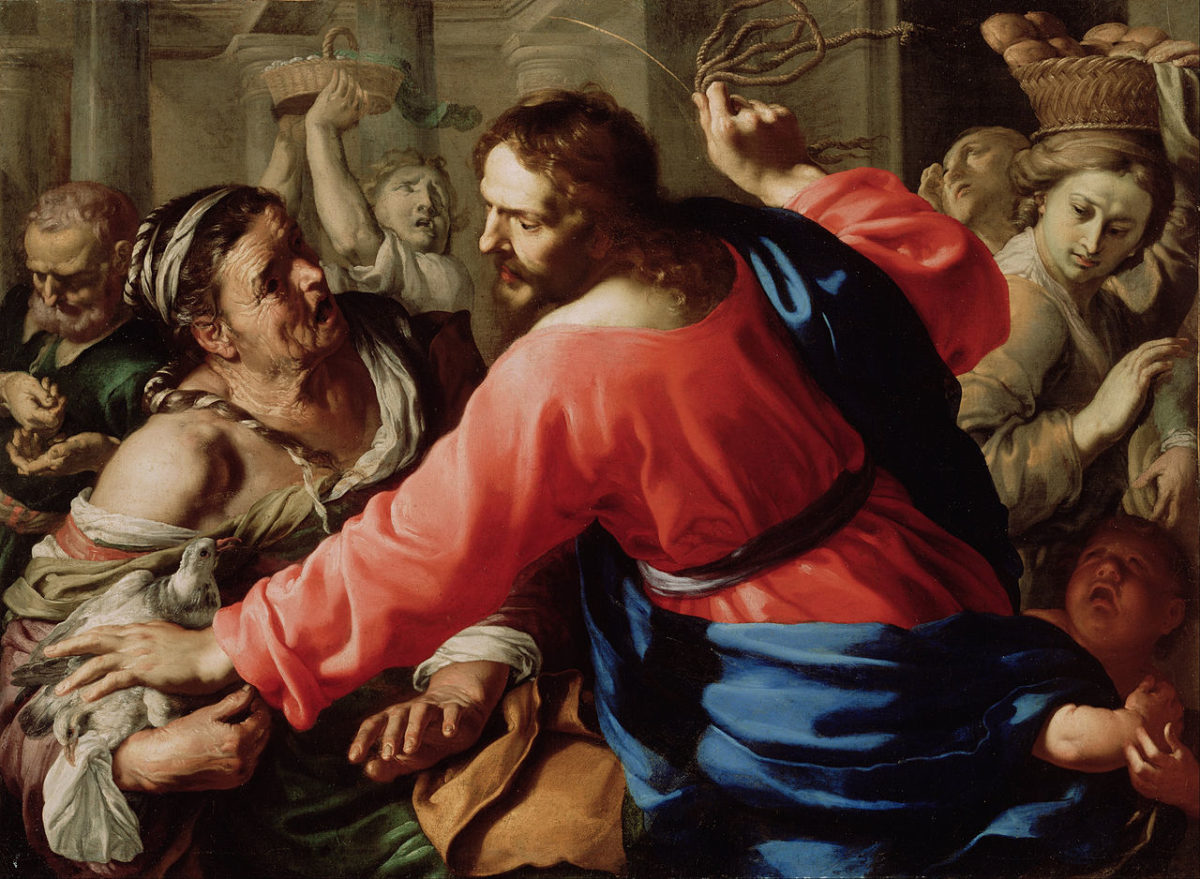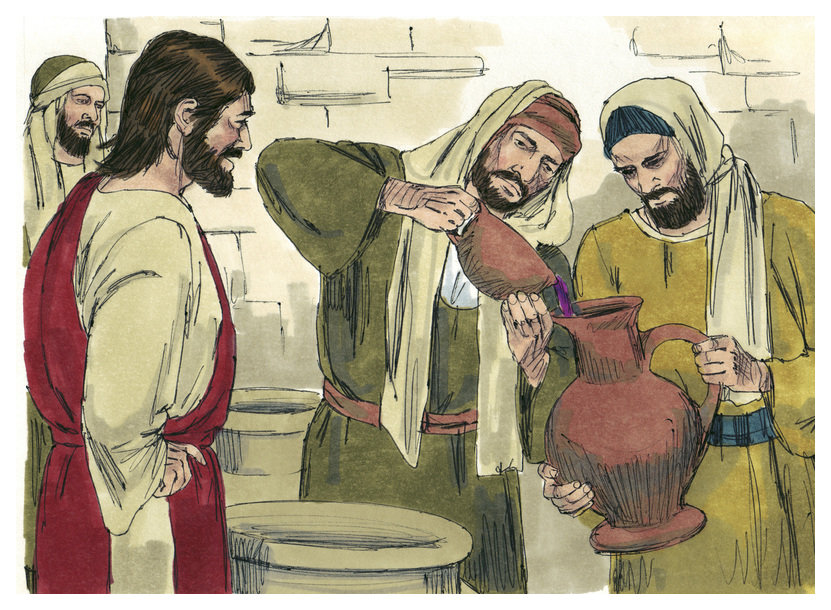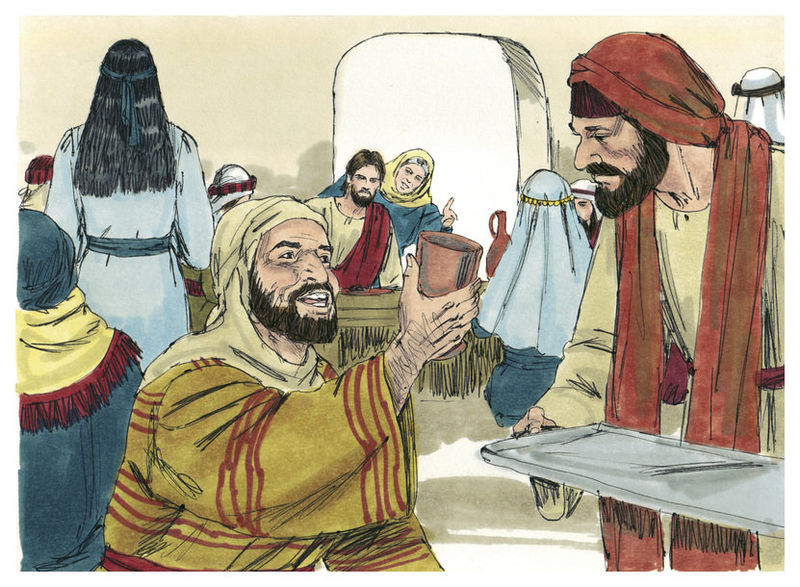The last two chapters of the Bible reveal many details of what you will and will not find in heaven. Focusing on these things can dramatically impact our lives in the weeks and months ahead.
I. WHAT YOU WILL FIND IN HEAVEN
“Then He who sat on the throne said, ‘Behold, I make all things new.’” Revelation 21:5
According to Revelation 21-22, here are five things you will find in Heaven:
1. A REMARKABLE CITY. “And he carried me away in the Spirit to a great and high mountain, and showed me the great city, the holy Jerusalem, descending out of heaven from God.” (Rev. 21:10). Heaven will consist of a beautiful city that is illuminated by Christ Himself (Rev. 21:11). Jesus’ presence will make this city look like a gigantic, glistening diamond. Instead of there being one pearly gate, there will be twelve pearly gates – three gates per wall. Look at the shape and size of this city (Rev. 21:12-13, 21a). This will be a square-shaped city that is fifteen hundred miles long, fifteen hundred miles wide, and fifteen hundred miles high (Rev. 21:16). This goes well beyond Earth’s atmosphere and into space. If a building in the city is this high and has a generous twelve feet per story, the building would be over six hundred sixty-six thousand stories! The New Jerusalem will appear to shine as a mass of pure gold with streets of gold (Rev. 21:18, 21b). The foundation of this remarkable city consists of twelve layers of precious jewels, making up the colors of the rainbow (Rev. 21:19-20).
2. REUNION with Other BELIEVERS. “Then one of the seven angels who had the seven bowls filled with the seven last plagues came to me and talked with me, saying, ‘Come, I will show you the bride, the Lamb’s wife.’ And he carried me away in the Spirit to a great and high mountain, and showed me the great city, the holy Jerusalem” (Rev. 21:9-10a). Note the connection between the New Jerusalem and the Church (bride of Christ). Jesus promised the apostles of the Church, “I go to prepare a place for you…that where I am there you may be also” (John 14:2-3). This remarkable city is being carefully prepared by God’s Son for His bride, the Church (cf. I Cor. 11:2; Ephes. 5:22-24).
The New Jerusalem will have twelve gates. “Also, she had a great and high wall with twelve gates, and twelve angels at the gates, and names written on them, which are the names of the twelve tribes of the children of Israel” (Rev. 21:12-13). Gates in ancient cities were often named with reference to where they led. For example, in ancient Jerusalem, the Benjamin gate led to the territory of the tribe of Benjamin. The names of the twelve apostles, whom Jesus promised would rule over the twelve tribes of Israel, are on the twelve foundations of the city (Rev. 21:14). What this suggests, is that King Jesus and the Church will rule Israel and the entire new earth from this city. So, every believer in Jesus during this Church age will live in the New Jerusalem and all other believers before and after the Church Age will live outside the City on the new earth. But these other believers will have access to the New Jerusalem: “But there shall by no means enter it anything that defiles, or causes an abomination or a lie, but only those who are written in the Lamb’s Book of Life.” (Rev. 21:27b). How do you get your name written in the Lamb’s book of life? By grace alone through faith alone in Christ alone (Ephesians 2:8-9).
3. RESPONSIBILITIES.“And there shall be no more curse, but the throne of God and of the Lamb shall be in it, and His servants shall serve Him.” (Rev. 22:3). The Bible says you will have the responsibility of serving the Lord in heaven. And there will be many different jobs. For example, Isaiah 65 tells us: “17 For behold, I create new heavens and a new earth; and the former shall not be remembered or come to mind. [bad memories will be erased] … 21 They shall build houses and inhabit them; they shall plant vineyards and eat their fruit.” (Isaiah 65:17, 21). There will be construction work in heaven and gardening. I believe the greatest inventions will be made in eternity. If people can put men on the moon and build skyscrapers in their fallen state, think of what they will be able to do in their perfect resurrection bodies!

www.revelationillustrated.com
4. REWARDS. There is so much teaching on this in the New Testament, but for now we’ll just look at one verse. “Blessed are those who do His commandments, that they may have the right to the tree of life, and may enter through the gates into the city.” (Rev. 22:14). Believers whose lives are characterized by obedience to God’s commands now will enjoy access to the tree of life in the New Jerusalem and the privilege of being able to enter the city through its twelve main gates. The tree of life was in the original Paradise, the Garden of Eden, and it will flourish in God’s eternal kingdom, providing a different fruit each month and enhancing the lives of those who eat it. In the Middle East today, some cities have special VIP entrances into the city. The New Jerusalem will have twelve such gates. While all believers will be able to enter the city, only faithful believers will enter by the twelve gates of pearl. In the Old Testament to be “in the gates” was an honor reserved for the elders of the city. To enter New Jerusalem through one of its twelve gates of pearl, will be a great honor reserved only for those Christians who overcame in this life.
5. REJOICING. What I mean by this is we are going to worship in heaven. We will honor the Lord Jesus Christ forever in Heaven. We will celebrate who He is and what He has done throughout eternity! “And the nations of those who are saved shall walk in its light, and the kings of the earth bring their glory and honor into it.” (Rev. 21:24). In heaven, there will be different nations perhaps much like today. The leaders of these nations (overcomers) will reenact what the wise men did almost two thousand years ago, when they brought their gifts to baby Jesus. In eternity, the kings of the earth are going to bring their glory (treasures) to King Jesus year after year in the New Jerusalem to worship and glorify Christ. This new earth is going to be a glorious place where everyone brings glory to God. All the curses that came as a result of the fall in the Garden of Eden are going to be removed. There will be no more pollution… no animals that we need to fear… no people we need to fear – no criminals because no one will sin on the new earth. It will be like the Garden of Eden revisited. It will be paradise on the new earth, not in heaven. So, contrary to what many people think – we are not going to spend eternity floating on some cloud playing a harp in a colorless place. Instead we will spend eternity on the Garden of Eden revisited – the new earth.
Knowing what heaven will be like can motivate Christians to prepare for this wonderful place. While all believers in Jesus Christ will enter or occupy the new earth (Kingdom of God) through childlike faith alone in Christ alone for His free gift of eternal life (Matt. 18:3; Mark 10:14-15; Luke 18:16-17; John 3:5-16; Rev. 21:6), only those who faithfully trust and obey Christ until the end of their life on earth will inherit (Matt. 5:3; Rom. 8:17b; 2 Tim. 2:12; James 2:5; Rev. 2:26-27; 3:21; 20:4, 6; cf. Exodus 12:48-49; Numbers 18:20-24; 36:7-9; Deuteronomy 21:15-17; I Cor. 6:9-11; Galatians 5:19-21; Ephes. 5:5-6) or possess all that is promised to the overcomer in Revelation including wearing special white garments (Rev. 3:4-5), ruling with Christ (Rev. 2:26-27; 3:21; cf. 2 Tim. 2:12), eating the fruit of the tree of life (Rev. 2:7), eating hidden manna (Rev. 2:17), receiving a white stone engraved with your own special name that only the Lord and you will know (Rev. 2:17), and receiving a special entrance into the New Jerusalem (Rev. 21:7a; cf. 22:14).
II. WHAT YOU WILL NOT FIND IN HEAVEN
“And God will wipe away every tear from their eyes; there shall be no more death, nor sorrow, nor crying. There shall be no more pain, for the former things have passed away.” Revelation 21:4
Here are five things you will not find in heaven according to Revelation 21:
1. No SADNESS. “And God will wipe away every tear from their eyes.” (Rev. 21:4a). No more broken hearts … rejection… loneliness… grief. No more heartache. That is heaven. God will wipe away every tear from your eyes. You will not have sadness or grief again. Those of you who are grieving the loss of a loved one or maybe you’ve been going through a period of depression, one of the things that does in our lives is it just makes heaven seem a little bit closer. We want to go to heaven when we are in pain. Why? Because there is none there.
2. No DEATH. “There shall be no more death.” (Rev. 21:4b). There will be no funerals in heaven… no more cemeteries. Why? Because in that heavenly city no one ever dies. You won’t ever have to be concerned about losing a loved one because death will be gone forever!
3. No SUFFERING. “There shall be no more pain” (Rev. 21:4c). No more bad hair days ladies and gentlemen. Everything about us will be perfect. This will be a glorious time. We will have glorified bodies. There will be no eyeglasses, no braces, no wheelchairs, no hearing aids, and no crutches. There will be no more hospitals, no ambulances, no CPR. COVID-19 will not exist, aspirin will be gone, accidents over, heart attacks banished, AIDS a distant memory, cancer done away with. No more chronic pain.
4. No SHADOWS. “The city had no need of the sun or of the moon to shine in it, for the glory of God illuminated it. The Lamb is its light.” (Rev. 21:23). There will be no need for the sun, moon or stars in heaven because the glory of Jesus will be its light. This will be the heavenly version of “the city that never sleeps.” We will not need to sleep because we will have glorified bodies that never grow tired. No need for caffeinated coffee! No sadness, no death, no suffering, no shadows…
5. No SIN. “But there shall by no means enter it anything that defiles, or causes an abomination or a lie, but only those who are written in the Lamb’s Book of Life.” (Rev. 21:27). Nothing that is sinful or leads to sin will ever be a part of the New Jerusalem. Unbelieving people and their evil ways will be confined to the Lake of Fire (21:8). I’m looking forward to the moment that I no longer have any temptations or sin in my life. No more hang-ups. Think about it – no more fears. Can you imagine what it’ll be like to live with no fear, no guilt, no shame, no resentment, no worry, no bitterness, no envy, no jealousy, no loneliness. But you’re still going to be you. You will still have your personality only without any weaknesses.
Heaven is going to be an incredible place! God loves you so much that He wants you to live with Him there for eternity. To do so, you must receive His free gift of eternal life. Why? Because the Bible says we are born with sinful hearts – “Surely, I was sinful at birth, sinful from the time my mother conceived me.” (Psalm 51:5). From the moment of conception, we possess a sinful nature that causes us to break God’s rules. Because all of us have sinned (Romans 3:23), we deserve to be separated from God forever in the Lake of Fire (Romans 6:23a; Rev. 20:15). But God’s love for those who don’t possess eternal life is so great that in the final two chapters of the Bible He offers eternal life (“the water of life”) as a free gift (Revelation 21:6; 22:17). “The water of life” is eternal life and Jesus offers it “freely” to those who believe in Him. You don’t work for eternal life because it has already been paid for when Jesus died on the Cross for our sins and rose from the dead. Jesus said, “He who believes in Me has everlasting life.” (John 6:47).
What is Jesus asking you to do that is hard for you to trust Him with? Is He asking you to trust Him for eternal life, but it’s hard for you to let go of your works and trust Him alone? It’s so simple that children get it and adults miss it. None of us are promised tomorrow. If you were to drop dead in the next minute are you absolutely certain you are going to heaven? If you are not, you can make sure right now. Why would anybody put it off? You need to settle this issue right now and you need to put your trust in Jesus for eternal life. When you trust Him, He gives you everlasting life (John 6:47), He forgives all your sins (Acts 10:43; Colossians 2:13-14), He places you in God’s family forever (John 1:12; 6:37), and He comes to live inside of you through His Holy Spirit (John 7:39a; Galatians 4:6). He guarantees that you will live with Him forever in Heaven when you die or are removed from the earth through the Rapture of the Church, whichever occurs first (John 3:16; I Thessalonians 1:10; 4:13-5:11; I John 5:13).
If you just believed or trusted in Jesus alone for His gift of everlasting life, you can tell Jesus this through prayer. But praying this prayer is not what gets you to heaven. Only trusting in Christ alone gets you to heaven. This prayer is a way of telling God you are now trusting in His Son.
“Dear Jesus, I come to you now as a sinner who cannot save himself. I believe You died in my place on the cross for all of my sins and rose from the dead. I am now trusting in You alone, Jesus (not my good life, my prayers, or my religion) to give me everlasting life and a future home in heaven. Thank You Jesus, for the everlasting life I now have and the future home I will have in heaven. In Jesus’ name. Amen.”
When you believed in Jesus, He gave you everlasting life which can never be lost (John 10:28-29). He forgave all of your sins (Acts 10:43; Col. 2:13-14) and placed you in His family forever (John 1:12; 6:37). Christ’s Spirit now lives inside of you to comfort, guide, and teach you how to follow Jesus as you read and apply the Bible (John 14:26; 15:26; 16:13-14; 2 Timothy 3:16-17). To help you grow in your new relationship with Jesus, please visit www.seeyouinheaven.life or www.knowing-Jesus.com or www.evantell.org.
If you found this article to be helpful, please share it with those you want to see in heaven. Thank you and may Jesus reveal more of Himself to you as you learn to follow Him.
*Note: The Revelation Art is used by permission of Pat Marvenko Smith, copyright 1992. To order art prints visit her “Revelation Illustrated” site, http://www.revelationillustrated.com.


